Is Eating Meat Bad for the Environment?
QUESTION: “Hi Maria! I have gone back and forth about eating and not eating meat for lots of different worries about the land or animals etc. How do you deal with any guilt or negativity around carnivore due to the animals and deforestation, or do you just make sure to ethically source and give thanks for it? You put so much care into what you do so I’d love to hear you view on this.”
The increase in rain forest burning is primarily due to the recent tariffs. They are planting more soybeans, etc. This article HERE talks about this link.
It is also a misconception that a certain percentage of crops are just to feed cattle. The cattle eat the parts that we don’t. Stalks, leaves. The soybeans and corn are turned into soybean oil and corn syrup. About 80-85% of what the cows eat are the parts that humans don’t eat.
We do buy quality sustainable beef as that actually helps reverse climate change. Let me explain how.
Is Eating Meat Bad for the Environment?
Beef and Climate
A hot topic these days is the connection of beef to climate change. Let’s take a look at some of the latest science.
First, it is very important to list the real data related to cattle and climate change to know what we are dealing with. Cows contribute about 1.8% of greenhouse gas emissions in the US. For reference, transportation is about 28.5%, electrical grid is 28.4% and industry is about 21.6% (1).
Second, it is very important to note the source of the carbon emitted in each of these groups. The 78.5% of emissions from cars, electricity and industry are largely net new carbon from oil and gas. This is carbon that was never in the atmosphere before. It was pulled from the ground and then emitted into the atmosphere. Cows and other ruminants get their carbon from the plants they eat. The plants got the carbon from the atmosphere. So it is recycled carbon from the atmosphere, not net new carbon. Carbon is pulled from the air into the plant, the cow eats the plant and some of the carbon is put into the cow (muscle, etc) and then a small amount is emitted back into the atmosphere (burps and farts). It is an important distinction. Cows aren’t alchemist, they don’t create new carbon. It is just recycled from the atmosphere.
Globally the numbers are higher but studies have shown that globally greenhouse gas emissions from all food production is about 26% of global emissions. Of that 26%, livestock (cattle, pigs, chickens, etc) make up 31% and crops make up 27% (2). Crop production isn’t free. So if you switch everyone from eating meat to crops, you are going to offset much of the benefit with increased emissions from crops.
Row crops (corn, soybeans, wheat) also strip the soil of nutrients. It is estimated that we have only 60 harvests left on our fields! (3) So after about 60 more years, the fields won’t be able to grow crops anymore. You need the cattle and other ruminants back on those fields to help replenish the soil of nutrients.
And what about all the bison, elk, deer, giraffe, buffalo, sheep, goats, antelope, moose, caribou and tens of millions other ruminants roaming the planet? Do we go around killing them all?
Ruminants are an important part of the cycle of carbon on our planet. They replenish the soil with nutrients keeping our top soils healthy. And studies have shown that when you raise cattle properly, they can actually be a net sink of carbon meaning they remove carbon from the atmosphere! (4)
Eating properly raised regenerative cattle like that from Peidmont Beef can help remove carbon from the atmosphere. If you are concerned about greenhouse gas emission, then just buy properly raised beef.
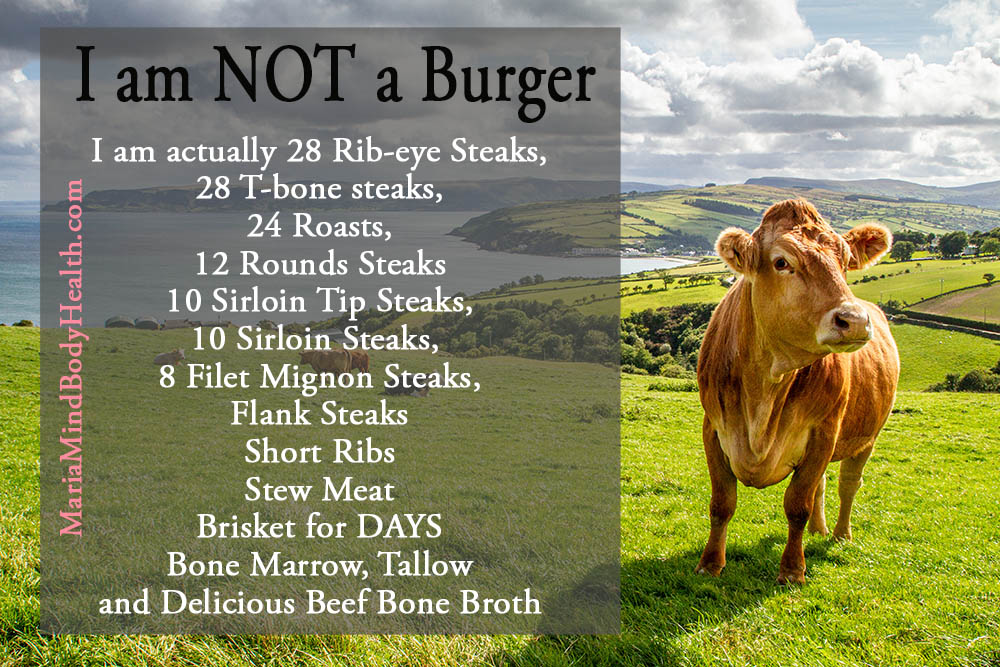
This video has one of the people in charge of trying to reduce climate impact from agriculture and he debunks many of the myths of cows in relation to climate change.
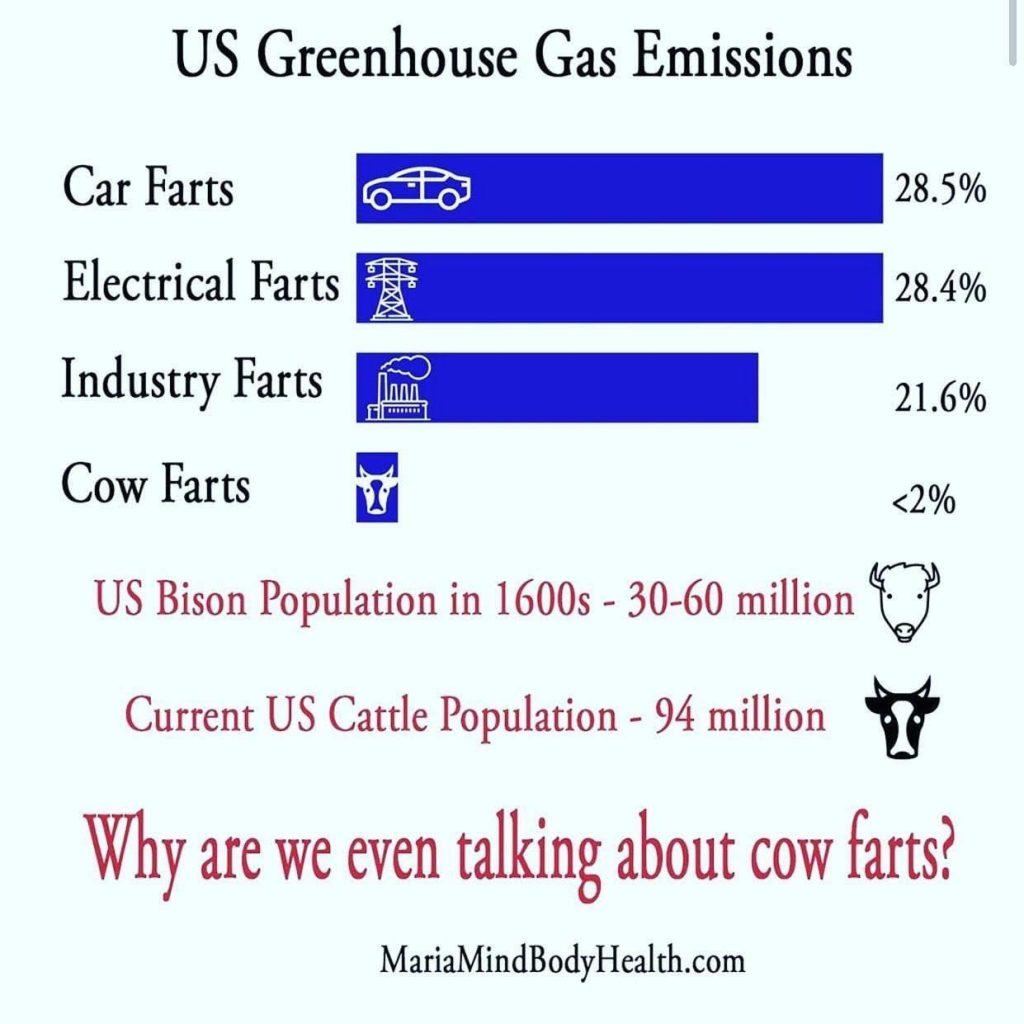
Quality of Protein Sources
Another important aspect is the need for complete protein by humans. Humans need a certain amount of protein each day to survive. They are called essential amino acids for that reason, they are essential for life.
You may have seen this chart posted by those promoting a plant based diet and even on the film “Game Changers” where a lot of misleading information was shared.
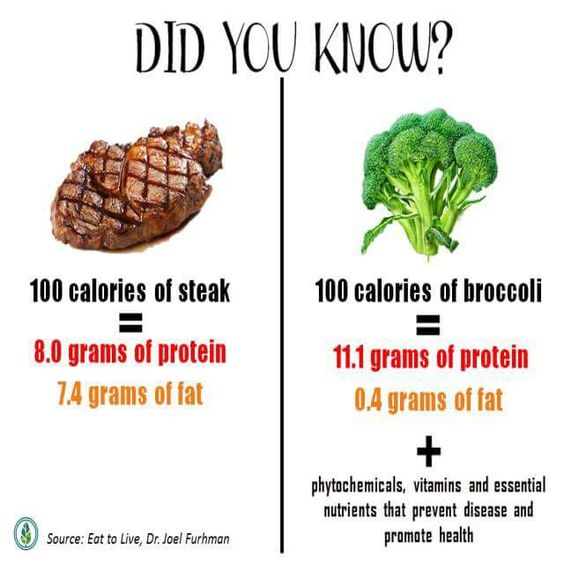
This graphic attempts to sway you to believe you can get all the protein you need from plants. There are several problems with this graphic. First, broccoli doesn’t have 11g protein per 100 calories. It has 8 grams protein per 100 calories (you can find this on any calculator like HERE).
Second, it attempts to say that the broccoli is somehow higher in vitamins and minerals than the beef. This is also false which you will see below.
Third, it does not account for the completeness or PDCAA value of the protein source. Certain amino acids are needed to stimulate muscle protein synthesis (MPS or mTOR or muscle building). There is a Leucine threshold that needs to be reached before your body will start mTOR and build muscle and tissues. That threshold is about 3.2 grams leucine for a typical person (the amount needed increases with age as well, great video HERE). So how much broccoli and steak are needed to get 3.2 grams leucine and actually build some lean mass?
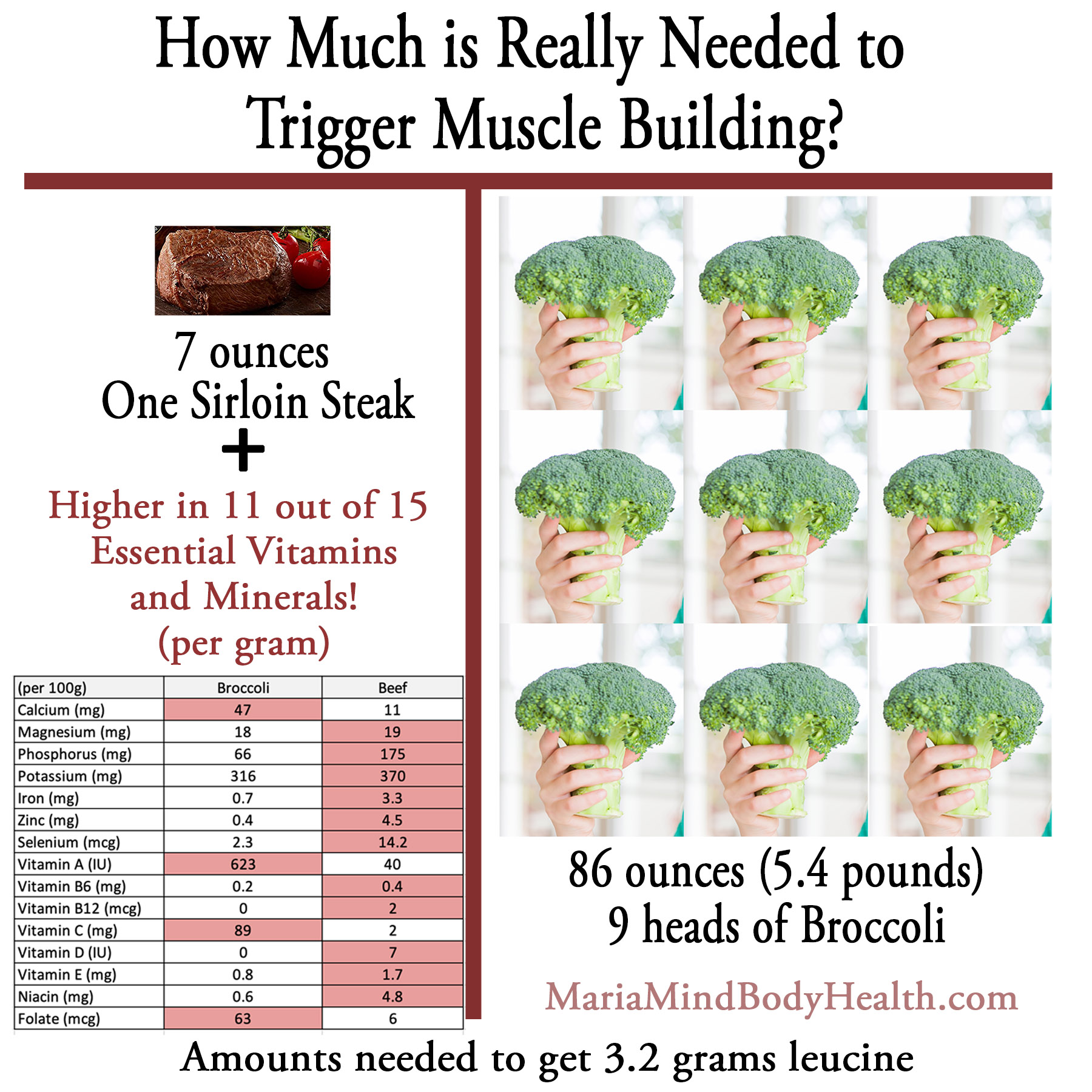
That’s right, you need to eat 5.4 POUNDS of broccoli to get enough leucine. That is 9 heads of broccoli!! With a sirloin steak, you only need 7 ounces. Think about that for a minute. Promoting broccoli as one of the best plant food sources of protein, and you need 5.4 pounds of it to just trigger muscle synthesis one time is just crazy and not sustainable. From just the protein perspective, plant based is not sustainable for healthy humans. Imagine having to grow (and consume) 11 pounds of broccoli (to trigger MPS just twice) per person per day for everyone on the planet!? We don’t have enough farm field for that.
The final point is that no, broccoli isn’t more nutrient dense. 100 grams of each shown in the chart above results in beef beating out broccoli in 11 out of the 15 essential vitamins and minerals listed.
More On Sustainability of Cattle
For more on the sustainability of cattle and how they can actually help lower overall carbon in the atmosphere and improve health at the same time, the documentary Sacred Cow is really great. You can find where to watch it HERE.
References
(1) EPA.gov, https://www.epa.gov/ghgemissions/sources-greenhouse-gas-emissions
(2) Food production is responsible for one-quarter of the world’s greenhouse gas emissions by Hannah Ritchie, November 06, 2019, https://ourworldindata.org/food-ghg-emissions
(3) Only 60 Years of Farming Left If Soil Degradation Continues, https://www.scientificamerican.com/article/only-60-years-of-farming-left-if-soil-degradation-continues/
(4) Impacts of soil carbon sequestration on life cycle greenhouse gas emissions in Midwestern USA beef finishing systems, https://www.sciencedirect.com/science/article/pii/S0308521X17310338
If you would like to make a difference and support a small family rather than making a minuscule sale for a large company, I am happy to announce that you can now get my books as a high quality ebook that works on any platform (all done by my wonderful husband!). This is an ebook format that works on any computer or mobile device. It is a beautiful pdf that has all the full color pages and layouts as the printed books with click-able table of contents and searching capabilities. This is extremely useful when trying to find a recipe. These books are much higher quality than the ebook platforms (kindle, apple). Plus, most of the profits don’t go to Amazon or apple!
Click HERE to find it for sale!
Thank you for your support!
TESTIMONY OF THE DAY
“I would like to thank Maria Emmerich for helping me get my health back!
In 2016, I was desperate. I was DOWN to 230 from 260+ but couldn’t lose more. I had tried every diet. At age 62, I had lost 100 lbs at least 4 times in my life (coming from an obese family). I needed a knee replacement and spinal lumbar surgery. Then I started hearing about Keto and Maria’s name popped up.
I checked out her credentials and took a chance on a phone consultation. That started my new way of eating/life. It was hard to change the way I saw food but, most of all, control my sugar addiction (which will always be a part of me). Honestly, there have been ups and downs. Sometimes, I’ve had periods of childish resentment, wanting to have unlimited sweets 24-7. That ended up with a 75 lb gain before I wrestled control back from my addiction. You learn a lot from these set-backs! Addiction never goes away.
But back to the point, Maria gave me all of the knowledge and support that became the basis for my Keto way of life. To this day, it still helps me weed through the true and false info I read on line! I love how she has Keto community spirit and has led me to some great women bloggers with great recipes. My current weight is 123 lbs, ht is 5’3”, BMI 21.8. I take less medication. No longer pre- diabetic.
Thank you. You changed my life. God bless!” – Pam

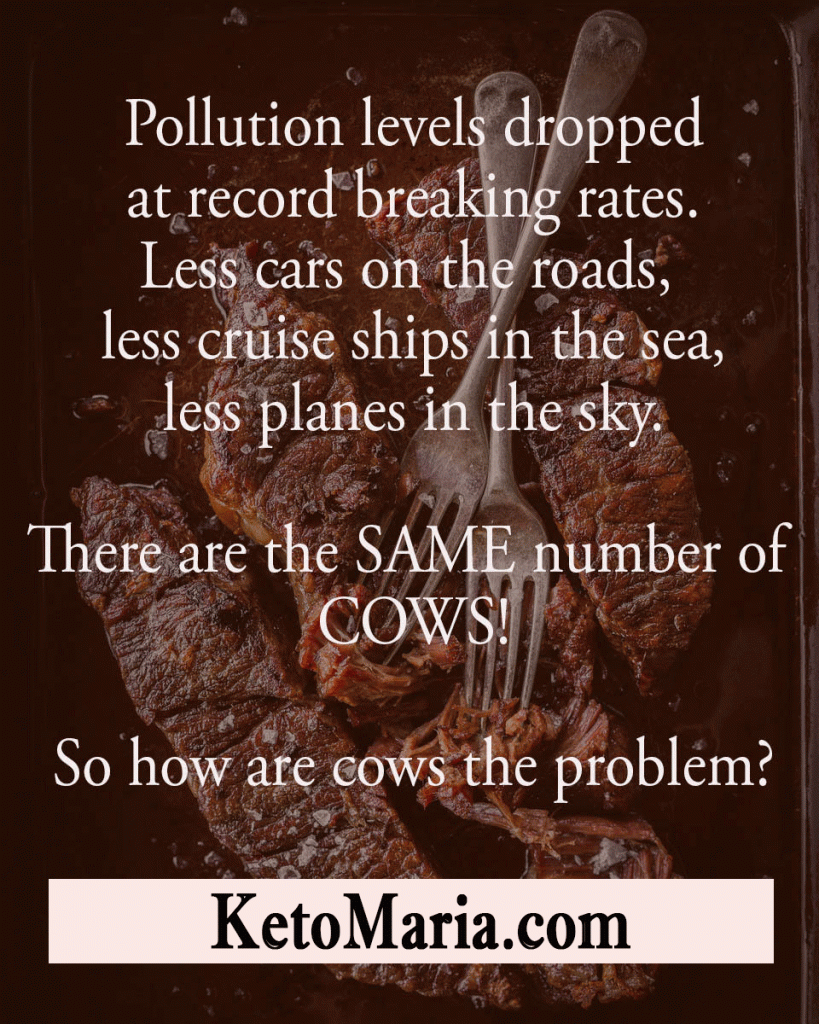
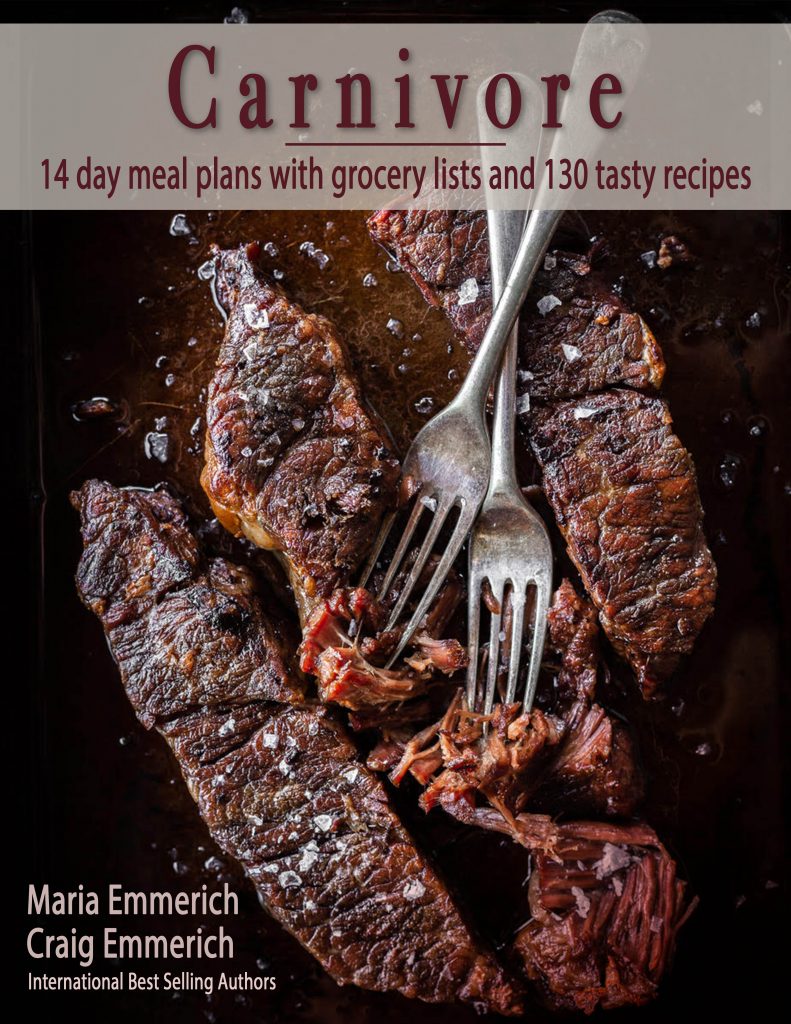

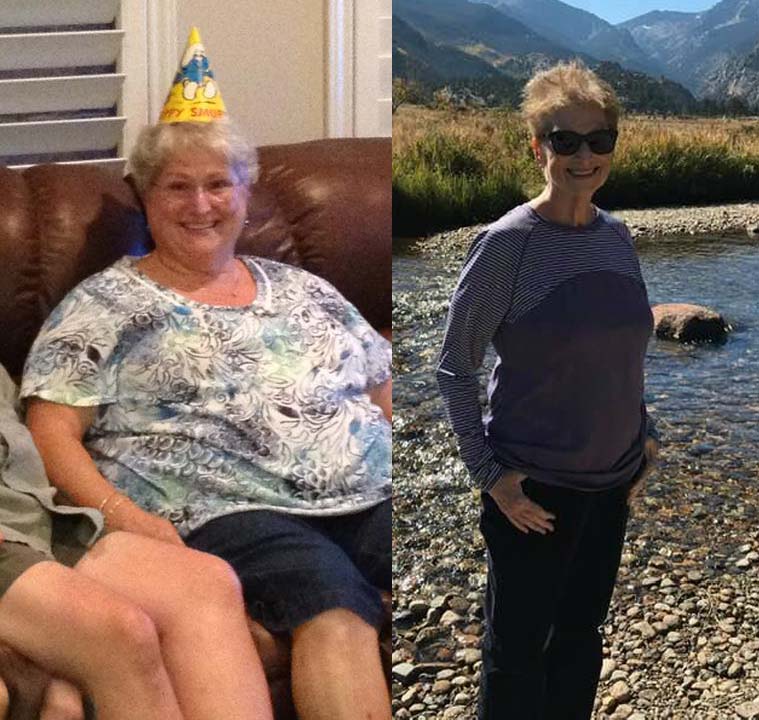

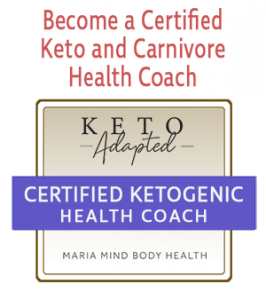

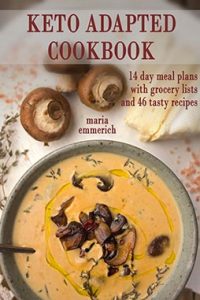

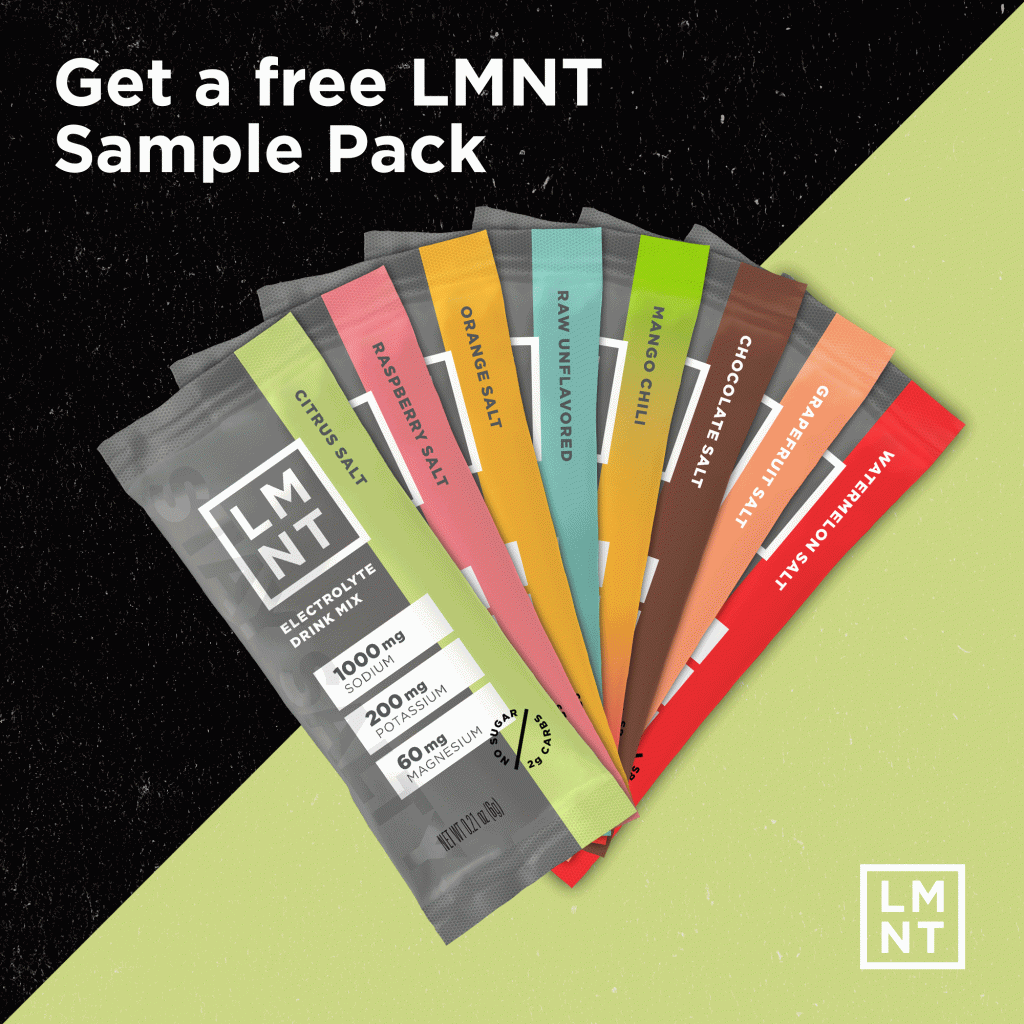
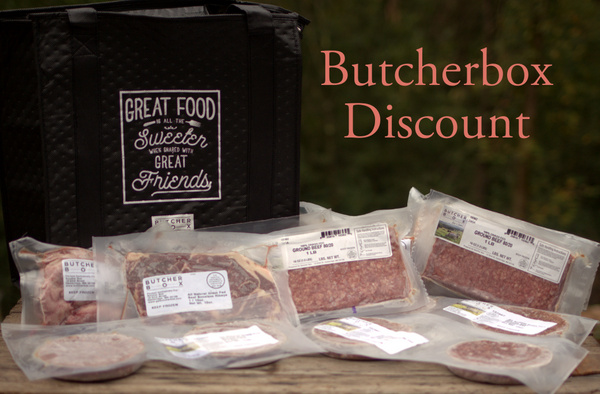


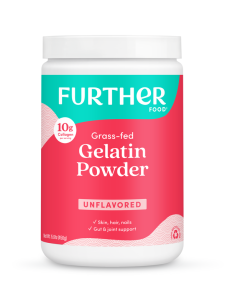


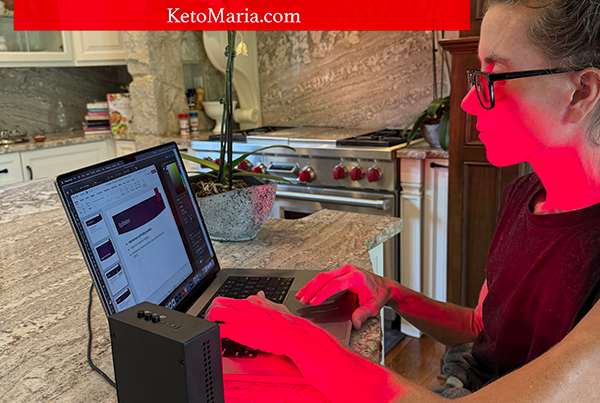
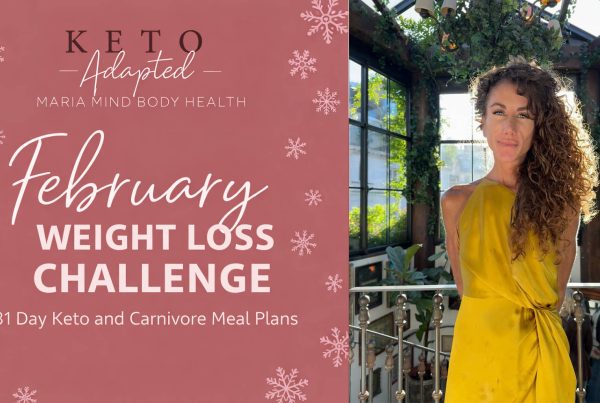
Hi, I just wanted to know if you can’t afford to buy grass fed meat & pastures pork & chicken & you can only afford to get farm raised beef or chicken, which is better to buy?, which is the lessor or the two evils, I’m on a very fixed income.
We always say to buy the best quality you can afford. Even the cheapest costco beef will be healthier than processed foods and the meat will still be very nutrient dense. 🙂
Excellent article. Stubborn vegetarians and vegans think they are spiritual by not eating meat. Such a ridiculous and unintelligent way of thinking and living. They actually hurt them a lot internally with their hate and externally with their irrational behaviour. Go study.
Hi Maria,Did I read that write???? 100g Broccoli has 8 g Protein????? What I can see in my data (app) is that 100g fresh broccoli has 3,8 g of Protein!!!!!
not 11g and not 8g either!!!!
Or did I miss something????
Regards
Ingrid
It is per 100 calories. 🙂
Which is better – the beef or chicken?, which has less chemicals?.
Both are great options. We always say buy the best you can afford.
I’m confused. I’m trying to figure out what is the best way to go for a healthy lifestyle Keto or Carnivore? I’ve just ordered your carnivore cookbook but also saw that you had so many on Keto. How do I decide? I’m a 67 year old female. I don’t eat sugar or processed foods or grains. But idon’t feel healthy.
Both are great healthy lifestyles. It is really about your personal preference. 🙂